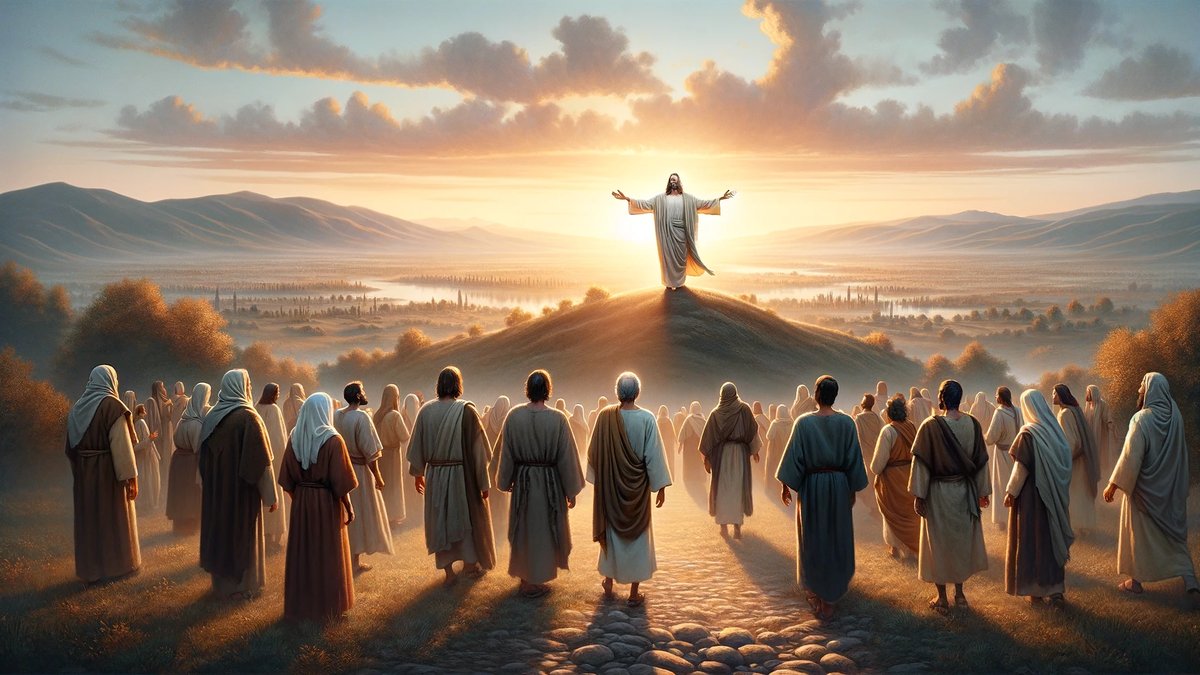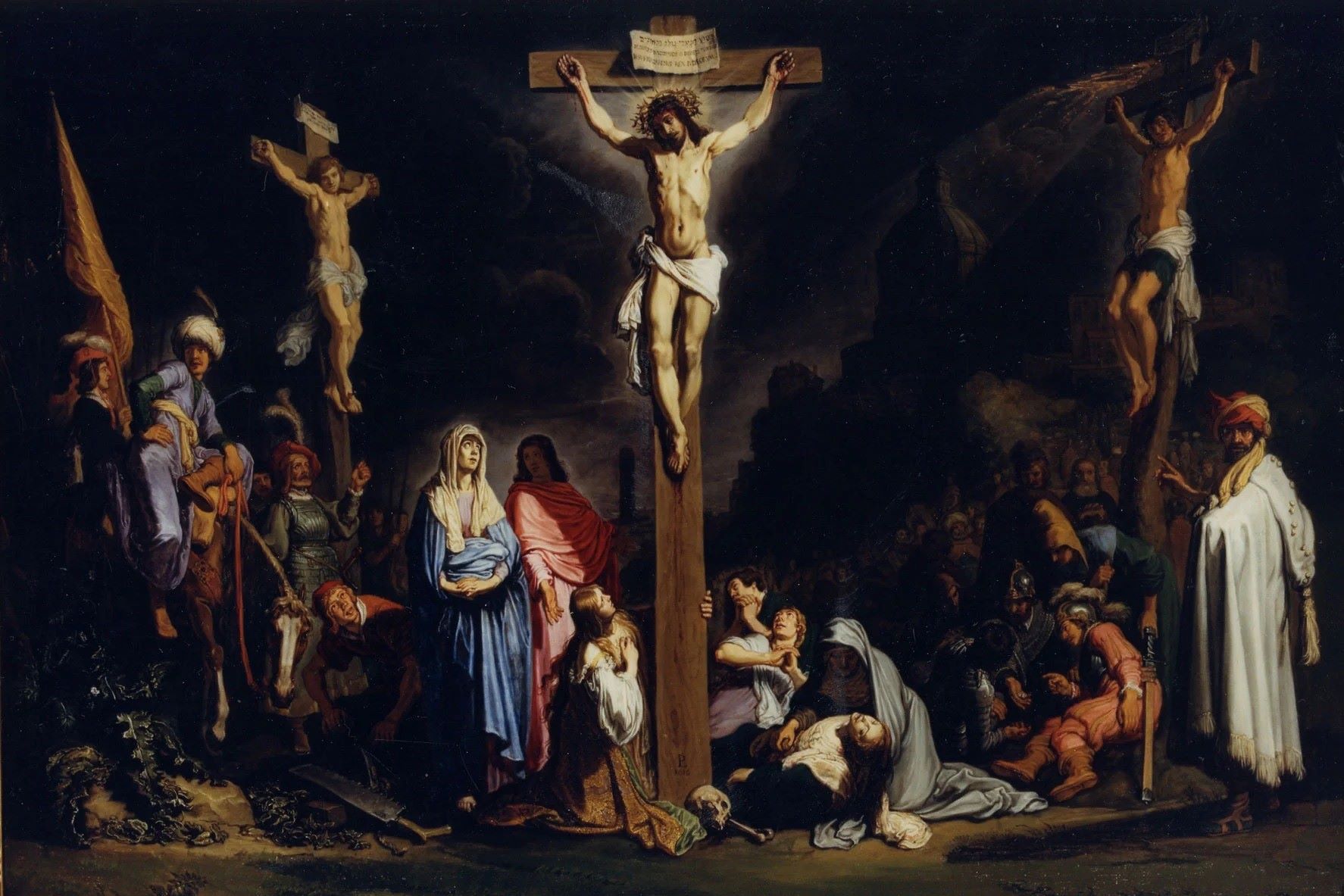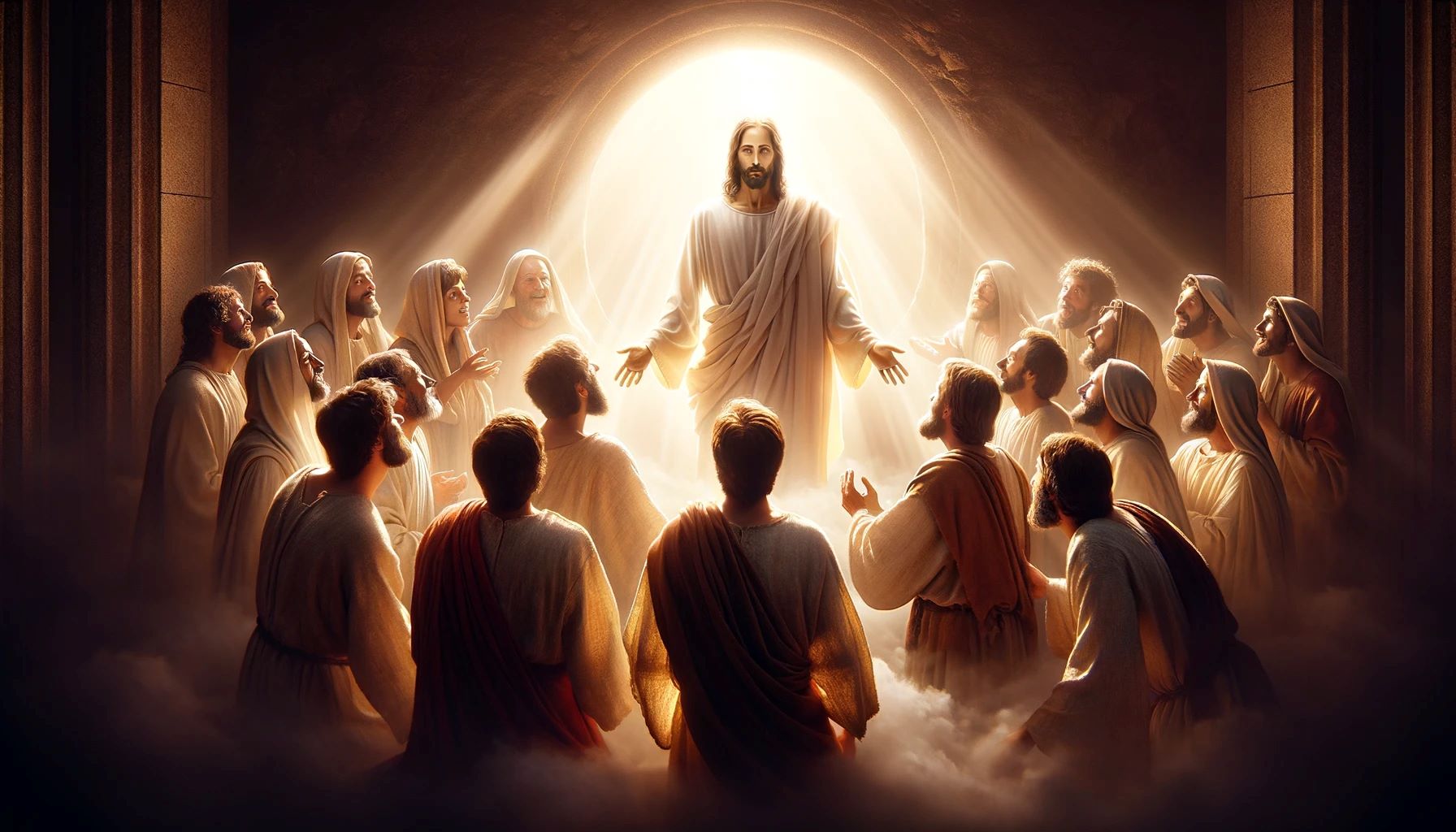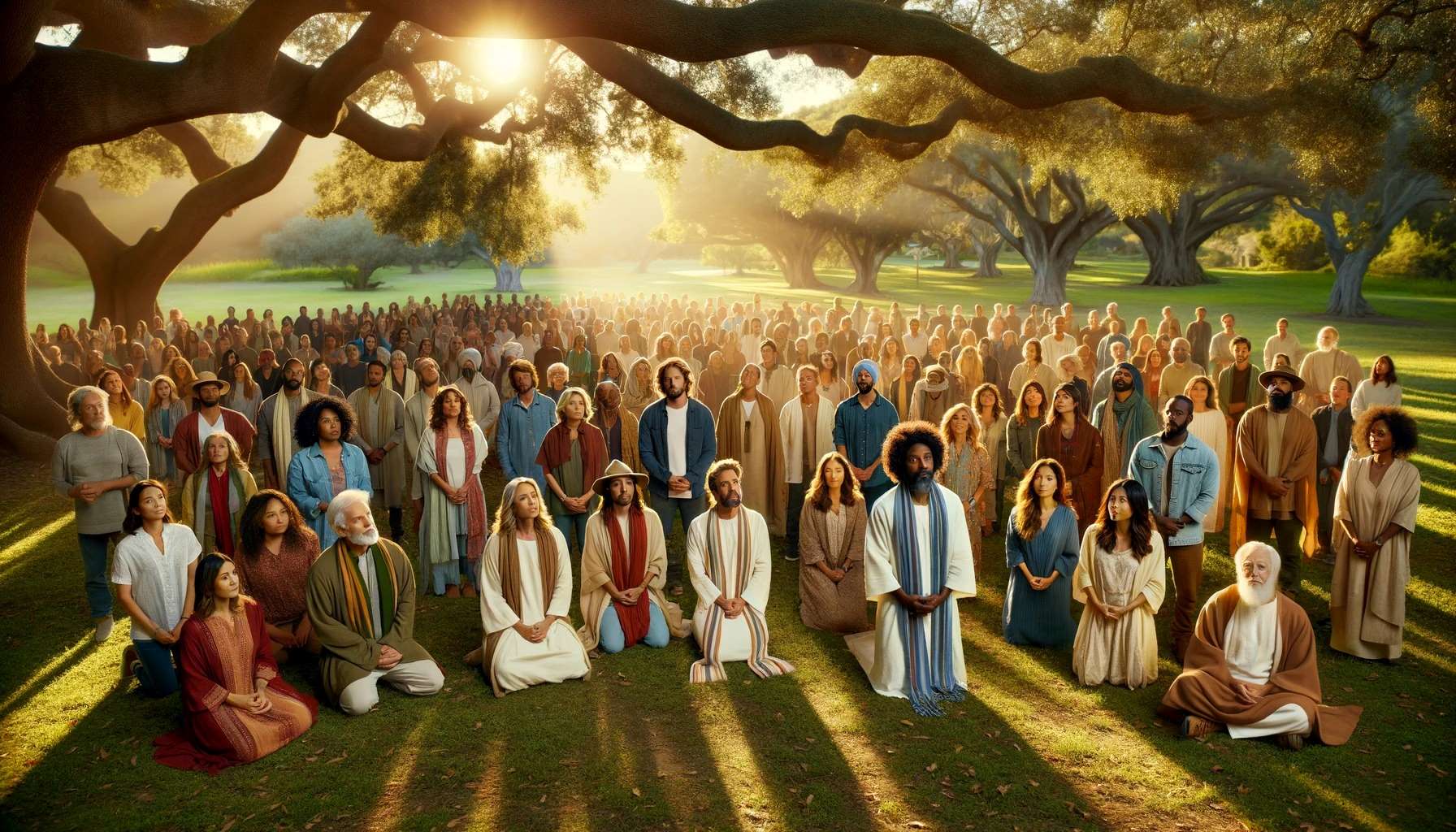Home>Christian Videos>Bible Stories>Why Does Christianity Believe Jesus Christ Is The Messiah


Bible Stories
Why Does Christianity Believe Jesus Christ Is The Messiah
Published: March 3, 2024
Jason DeRose, Managing Editor at Christian.net, uses his expertise in religion and journalism to deepen understanding of faith's societal impacts. His editorial leadership, coupled with a strong academic background, enriches the platform’s diverse content, earning him recognition in both journalism and religious circles.
Discover the significance of Jesus Christ as the Messiah in Christianity through biblical stories. Explore the beliefs and teachings that shape this fundamental aspect of the faith.
(Many of the links in this article redirect to a specific reviewed product. Your purchase of these products through affiliate links helps to generate commission for Christian.net, at no extra cost. Learn more)
Table of Contents
The Prophecies of the Messiah in the Old Testament
The Old Testament of the Bible contains numerous prophecies about the coming of a Messiah who would bring salvation and deliverance to the people. These prophecies, written hundreds of years before the birth of Jesus Christ, serve as a foundation for the Christian belief in Jesus as the Messiah. The fulfillment of these prophecies in the life, death, and resurrection of Jesus is a central tenet of the Christian faith. Here are some of the key prophecies in the Old Testament that point to Jesus Christ as the Messiah:
-
The Seed of the Woman: In Genesis 3:15, God speaks to the serpent and foretells that the seed of the woman will crush the serpent's head. This is understood as a prophecy of the coming of Jesus Christ, who would ultimately defeat the power of sin and evil.
-
The Lineage of David: The Old Testament prophesies that the Messiah would be from the lineage of King David. In Isaiah 11:1, it is written, "A shoot will come up from the stump of Jesse; from his roots a Branch will bear fruit." This points to the Messiah coming from the line of David, which Jesus fulfills as a descendant of David.
-
The Suffering Servant: In Isaiah 53, there is a detailed prophecy about a suffering servant who would bear the sins of many. This chapter is often seen as a prophetic description of the suffering and death of Jesus Christ, who Christians believe fulfilled this prophecy through his crucifixion.
-
The Virgin Birth: The prophecy in Isaiah 7:14 states, "Therefore the Lord himself will give you a sign: The virgin will conceive and give birth to a son, and will call him Immanuel." Christians see this as a prophecy of the miraculous virgin birth of Jesus Christ.
-
The Prince of Peace: In Isaiah 9:6, it is prophesied, "For to us a child is born, to us a son is given, and the government will be on his shoulders. And he will be called Wonderful Counselor, Mighty God, Everlasting Father, Prince of Peace." This prophecy is believed to point to the coming of Jesus Christ as the Prince of Peace, who brings reconciliation between God and humanity.
The fulfillment of these and many other prophecies in the life, death, and resurrection of Jesus Christ is a cornerstone of the Christian faith, reinforcing the belief that Jesus is the long-awaited Messiah foretold in the Old Testament.
Read more: Why Believe In Jesus Christ
The Life and Teachings of Jesus Christ
The life and teachings of Jesus Christ are central to the Christian belief in him as the Messiah. According to the New Testament, Jesus was born in Bethlehem to the Virgin Mary and Joseph. His birth, foretold by the prophets, is celebrated as the incarnation of God's love and grace. Jesus' teachings, often conveyed through parables, emphasized love, compassion, and forgiveness. He preached about the Kingdom of God, calling people to repentance and faith. His ministry was marked by miracles, including healing the sick, feeding the hungry, and even raising the dead. These acts were seen as signs of his divine authority and fulfillment of the Messianic prophecies.
Jesus' teachings challenged the religious authorities of his time, advocating for a deeper, more personal relationship with God. He emphasized the importance of humility, service, and the ethical treatment of others. His radical message of love and inclusion extended to all, regardless of social status or background. Jesus' interactions with outcasts and sinners reflected his compassion and desire for spiritual transformation.
The pinnacle of Jesus' life, according to Christian belief, was his sacrificial death on the cross. This event is seen as the ultimate expression of God's love for humanity, as Jesus willingly offered himself as a atonement for sin. His resurrection from the dead, three days after his crucifixion, is celebrated as the triumph over death and the fulfillment of God's promise of salvation. This event is the cornerstone of the Christian faith, affirming Jesus' identity as the Messiah and the Son of God.
The teachings of Jesus continue to inspire and guide millions of people around the world. His message of love, forgiveness, and redemption remains a powerful force in shaping Christian beliefs and practices. The life and teachings of Jesus Christ are foundational to the Christian faith, and his impact as the Messiah continues to resonate through the centuries.
The Resurrection and Ascension of Jesus Christ
The resurrection and ascension of Jesus Christ are pivotal events in the Christian faith, affirming his identity as the Messiah and the Son of God. According to the New Testament, Jesus rose from the dead on the third day after his crucifixion, demonstrating his victory over sin and death. The resurrection is seen as the fulfillment of the Old Testament prophecies and the ultimate validation of Jesus' divine nature. It is the cornerstone of Christian belief, symbolizing the hope of eternal life and the promise of salvation for all who believe in him.
The resurrection of Jesus is a central theme in the New Testament, with all four Gospels providing an account of the empty tomb and the appearances of Jesus to his disciples. These accounts emphasize the physical reality of Jesus' resurrection, as he appeared to his followers, ate with them, and invited them to touch his wounds. This tangible evidence of his resurrection served to strengthen the faith of his disciples and establish the truth of his victory over death.
Following his resurrection, Jesus spent forty days with his disciples, teaching them about the Kingdom of God and commissioning them to spread the message of salvation to all nations. This period culminated in the ascension of Jesus, as described in the book of Acts. The ascension took place on the Mount of Olives, where Jesus was taken up into heaven in the presence of his disciples. This event marked the return of Jesus to the presence of God the Father, affirming his exalted status and authority as the Messiah.
The ascension of Jesus is significant for several reasons. It signifies the completion of his earthly ministry and the beginning of his heavenly reign. It also serves as a promise of his eventual return, as Jesus himself foretold that he would come again in glory to judge the living and the dead. The ascension is a source of hope and assurance for Christians, as it points to the ultimate fulfillment of God's plan for redemption and restoration.
The resurrection and ascension of Jesus Christ are foundational to the Christian faith, shaping the beliefs and practices of believers throughout history. These events affirm Jesus' identity as the long-awaited Messiah and serve as a source of hope and assurance for all who put their trust in him. The impact of the resurrection and ascension continues to resonate in the hearts of Christians, inspiring faith, worship, and a steadfast hope in the promises of God.
The Impact of Jesus Christ as the Messiah in Christianity
The impact of Jesus Christ as the Messiah in Christianity is profound and far-reaching, shaping the beliefs, practices, and culture of millions of people around the world. His life, teachings, death, and resurrection have left an indelible mark on history, influencing art, literature, ethics, and social movements. Here are some of the key ways in which Jesus Christ's role as the Messiah has impacted Christianity:
1. Salvation and Redemption
The central message of Christianity revolves around the concept of salvation and redemption through Jesus Christ. His role as the Messiah is seen as the fulfillment of God's plan to reconcile humanity to Himself. The belief in Jesus as the Savior who offers forgiveness of sins and the promise of eternal life has been a source of hope and transformation for countless individuals.
Read more: Why Do The Jews Not Believe In Jesus Christ
2. Moral and Ethical Framework
The teachings of Jesus Christ, as recorded in the New Testament, have provided a moral and ethical framework for Christian believers. His emphasis on love, compassion, humility, and justice has influenced the development of Christian ethics and the pursuit of social justice. The example of Jesus as the Messiah has inspired countless acts of charity, service, and advocacy for the marginalized and oppressed.
3. Community and Fellowship
The identity of Jesus as the Messiah has been a unifying force for Christian communities, fostering a sense of fellowship and shared purpose. The belief in Jesus as the head of the Church has led to the formation of diverse Christian traditions, denominations, and congregations, each seeking to embody the teachings and mission of the Messiah.
4. Cultural and Artistic Expression
The impact of Jesus as the Messiah is evident in the rich tradition of Christian art, music, and literature. The life, death, and resurrection of Jesus have been a recurring theme in artistic expression, serving as a source of inspiration and contemplation for artists, musicians, and writers throughout history.
5. Mission and Evangelism
The belief in Jesus as the Messiah has fueled the global mission and evangelistic efforts of Christians, as they seek to share the message of salvation with others. The conviction that Jesus is the fulfillment of the Messianic prophecies has motivated believers to proclaim the gospel and make disciples of all nations.
Read more: Why Don’t The Jewish Believe In Jesus Christ
6. Hope and Comfort
The assurance of Jesus' identity as the Messiah has provided hope and comfort to individuals facing adversity, suffering, and loss. The belief in his resurrection and promised return has been a source of strength and perseverance for those enduring trials and tribulations.
The impact of Jesus Christ as the Messiah in Christianity extends beyond doctrinal beliefs and theological debates. It has permeated the hearts and minds of believers, shaping their worldview, values, and sense of purpose. The enduring influence of Jesus as the Messiah continues to inspire faith, transform lives, and unite diverse communities under the banner of his redemptive love.













